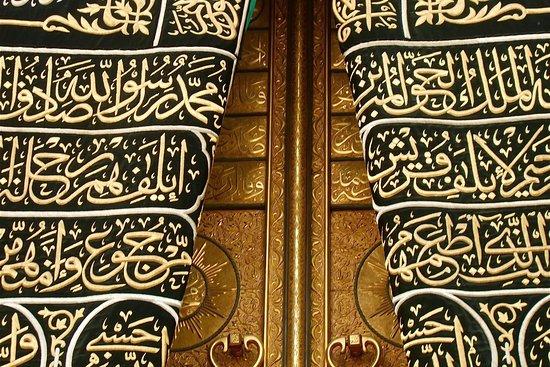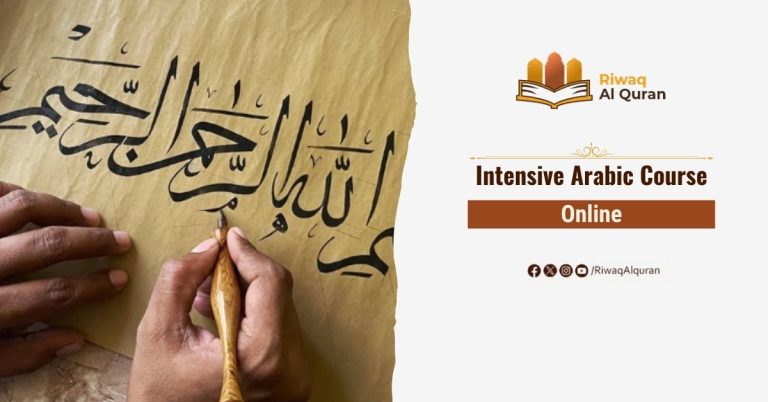Hajj, one of the five pillars of Islam; is obligatory worship that represents the unity and solidarity of Islam, its universality, and the brotherhood and equality of believers without any discrimination such as race, color, gender, language, and culture. With the words of our Prophet (PBUH):
(The superstructure of) Islam is raised on five (pillars), testing (the fact) that there is no god but Allah, that Muhammad is His bondsman and messenger, and the establishment of prayer, payment of Zakat, Pilgrimage to the House (Ka’ba), and the fast of Ramadan. (Sahih Muslim)
After covering the pillars of Hajj in Islam and how to correctly perform them in the previous blog, we will talk about the Wajibat of Hajj (the obligatory acts of this worship), Hajj basics, and when and how it should be done, insha’Allah.
Table of Contents
Hajj Is Farz or Sunnah
Hajj, also known as the farewell hajj, was made obligatory (Fardh) in the 9th year of Hijra, which is among the worship performed with both body and property.
The Prophet, who came to Mecca and fulfilled the stages of the Hajj there, left there on the eighth day of Dhul-Hijjah and went to Mina and spent the night there. The next day (Friday) he passed from there to Arafat via Muzdalifah. On that day, the Prophet gave his speech, known as the farewell sermon, in front of more than a hundred thousand Muslims.
On Whom Is It Obligatory to Do Hajj?
Hajj has been made obligatory for every Muslim, who is sane (who has reached the age of puberty), is free, and has sufficient power and opportunities, and time.
When is Hajj? How Long Is It?
Hajj takes place in the month of Dhul-Hijjah and it involves some steps that need a period of five to six days.
What Are the Three Types of Hajj?
Some Muslims ask: what are the different types of Hajj? Here is the answer:
- Ifrad: Performing Hajj alone which doesn’t require animal sacrifice.
- Tamattu’: It is done during the months of hajj, after performing umrah and exiting the Ihram, and entering Ihram again with the Niyyah of performing the hajj in the same year.
- Qiran: Qiran means to unite. This name is given here because hajj and umrah are combined in one Ihram. Those who do this hajj can come out of Ihram only when performing the hajj.
Here is more information about the types of Hajj in Islam with clear explanations!
Hajj Basics
Obligations of Hajj (Faraidh)
1. Entering into Ihram
Ihram means that the person who intends to perform hajj and umrah makes certain behaviors and actions that are permissible at other times ‘haram’ for a certain period of time, that is until the stages of hajj and umrah are completed.
What is Ihram?
It is a two-piece, seamless and unpretentious white garment covered by men who go on pilgrimage. This dress is the symbolic expression of Ihram. The ihram that will make the pilgrimage valid is called the purpose of wearing this dress. Ihram is also valid for women, but instead of wearing a different dress like men, they intend and enter in their normal clothes.
What are the Faraidh of Ihram?
- Niyyah
- Talbiyah as follows:
What are the Wajibaat (requirements) of Ihram?
- Entering Ihram without crossing the borders of Miqat
- Avoiding Ihram prohibitions
What are the prohibitions when in Ihram?
- Cutting/Shaving the hair
- Nail Clipping
- Covering the Head (for men)
- Clothes (for men)
- Wearing Perfume in Ihram
- Hunting
- Marriage
- Spousal Relationship
If the person with Ihram has done any of these prohibitions forgetfully or unconsciously, there is nothing on them. If done intentionally, then they have to do one of these:
- Fast three days
- Sacrifice sheep
- Feed 6 poor people
2. Waqf at Arafat
Those who intend to make the Hajj, stop for a while on the Arafah day of Eid-al-Adha, from the sunset, until dawn on the first day of the Eid.
3. Tawaf Al-Ziyarah
What is Tawaf?
Tawaf is to start by taking the Kaaba to the left from the corner or level and turn around the Kaaba seven times.
What are the Wajibat (requirements) of Tawaf?
- Wudu.
- Covering the private parts of the body.
- Starting the Tawaf from the right and not crossing the line of the black stone (Al-Hajar Al-Aswad).
- Doing Tawaf Al-Khitam from outside Hijr Ismail and on foot.
- Completing the Tawaf
- Performing Tawaf prayer


Wajibat of Hajj
There are 6 Wajibat of Hajj that Muslims should know. These Wajibat of Hajj are as follows in order:
1. Doing Sa’ee
Here are some frequently asked questions about Sa’ee:
What is Saee?
The Sa’ee is a type of worship that starts from Safa Hill, located to the east of the Kaaba, and ends in Marwa, going back and forth seven times (as four rounds and three rounds). Hadjar, the wife of Prophet Ibrahim, went seven times to find water for her son Ismael. After that event, Sa’ee began to be performed between these two hills, and Sa’ee was accepted as legitimate in the pilgrimage of Islam.
What are the Faraidh (obligatory acts) of Saee?
There are some conditions for the Sa’ee to be valid;
- Doing it after entering ihram for hajj, umrah, or both.
- Doing it after the hajj months have begun.
- Making Sa’ee after a valid (Sahih) Tawaf.
- To perform this worship at the place where Sa’ee is performed, starting from Safa and ending at Marwa.
- Making at least four Shawts of Sa’ee (for Hanafi Madhab), or making all the Shawts (in other Madhaib).
What are the Wajibat (requirements) of Saee?
- If one’s health permits, doing it on foot.
- Performing the Umrah Sa’ee after a valid Tawaf with Ihram and walking the entire place where the Sa’ee is performed.
2. Waqf at Muzdalifah
It is Sunnah for pilgrims to spend the night that connects the day of Arafah to the day of Eid here, and it is Wajib to make waqf here.
3. Stoning the Devil at Jamarat
It is a Wajib act to go after the Fajr worship of the 10th of Dhul Hijjah.
4. Shaving or Shortening the Hair before Leaving Ihram
5. Tawaf of Wada‘
This is the last Tawaf that non-Meccan pilgrims should do.
6. Sacrificing an Animal
It is an act that is given as a gift to the Kaaba, the Haram region, in order to gain the consent of Allah, which is called the Hady sacrifice.
How Many Sunnah of Hajj?
Now that we have learned the wajibat of Hajj, it is time to learn some sunnah acts of Hajj:
- Tawaf al-Qudum: a sunnah for pilgrims who make Ifrad or Qıran Hajj. It is performed until the Waqf at Arafat.
- Staying in Mina on the day of Tarwiyah (8th of Dhul Hijjah).
- Listening to Khutbah.
- Spending the Nights of the Days of Tashriq by staying at Mina.
- Spending the Eid night in Muzdalifah.
- On the way back from Mina, rest for a while in Al-Muhassab or Al-Abtah.
Learn Quran, Arabic And Islamic Studies Online With The Best Native Tutors
Riwaq Al Quran is a comprehensive online platform that offers personalized Quran, Arabic and Islamic Studies Online classes for individuals of all ages and backgrounds.
Their experienced instructors use a structured curriculum to cover Tajweed, Tafsir, and Memorization, providing easy and effective access to learning the Quran.
The advanced online classes allow for seamless communication and interaction between students and teachers. Join Riwaq Al Quran for a deeper connection with the Quran.
We offer several courses such as:
- Online courses for kids.
- Online Quran classes for kids and adults.
- Online Arabic courses
- Online Ijazah courses
- Online Islamic Studies courses.


Conclusion
Hajj has been made obligatory for every Muslim, who is sane (who has reached the age of puberty), is free, and has sufficient power and opportunities, and time. This worship, which every Muslim should know the Sunnah and Wajibat of hajj, is within the scope of Fiqh. Many Muslims try to learn this science in Madrasahs, through online courses with the opportunities of our age, or by studying by themselves.
To increase your knowledge in this field and become conscious as a Muslim, you can join us and enroll in our Fiqh of Worship Course at Riwaq Al Quran. Start your journey with two free trial lessons now and get preliminary information!
May Allah grant us all to be on the path of true knowledge and keep us firm on the right path…




































